Science Leadership Team
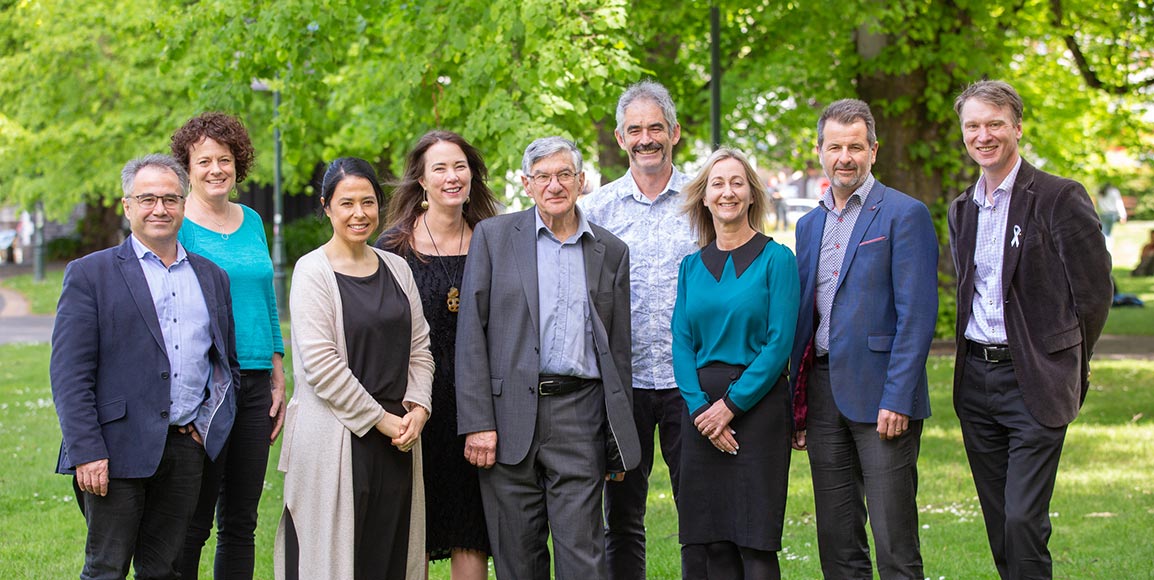
The Science Leadership Team guides Healthier Lives’ research priorities and strategy. Members include leading health researchers and clinicians from across New Zealand.
Members
Emeritus Members
- Professor Tony Blakely
- Professor Vicky Cameron
- Professor Catherine Day
- Dr Ofa Dewes
- Associate Professor Maui Hudson
- Associate Professor Rinki Murphy
- Professor Cris Print
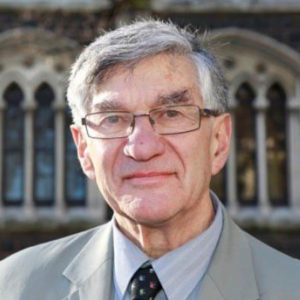
Professor Jim Mann - Healthier Lives Director
Professor Jim Mann (KNZM) is a world leader in human nutrition, diabetes and obesity. He has been Professor in Human Nutrition and Medicine at the University of Otago and Consultant Physician (Endocrinology) in Dunedin Hospital for over 30 years. He was previously the Director of the WHO Collaborating Centre for Human Nutrition, and is the Director of the NZ-China Non-communicable Diseases Research Collaboration Centre, co-Director of the Edgar Diabetes and Obesity Research and Principal Investigator for the Riddet Institute, a national Centre of Research Excellence.
Professor Mann has been involved in guideline development for numerous international and national organisations concerned with nutrition, diabetes and cardiovascular disease, several of which he has chaired or continues to chair. He has authored over 500 peer reviewed journal articles and written and edited several textbooks and popular books, including the Essentials of Human Nutrition.
- Professor Jim Mann’s research profile
- Edgar Diabetes and Obesity Research (EDOR)
- Public Health Research at Otago
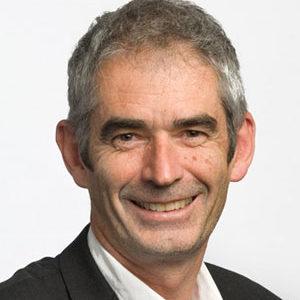
Professor Parry Guilford - Deputy Director
Professor Parry Guilford is a Principal Investigator in the Cancer Genetics Laboratory, University of Otago, the Director of the Centre for Translational Cancer Research, and the Chief Scientific Officer and co-founder of Pacific Edge Ltd. He completed his MSc at Otago in 1983, and his PhD at Cambridge University in 1989. He is a member of the MBIE Science Board, the HRC Board, and a recent recipient of the Charles Hercus Medal for biomedical research, the HRC Beaven Medal for translational health research, the University of Otago’s 2017 Distinguished Research Medal, and is a Fellow of the Royal Society of New Zealand.
Professor Guilford’s research interests include the genetics of inherited and sporadic cancers, and the development of new cancer diagnostics and therapeutics.
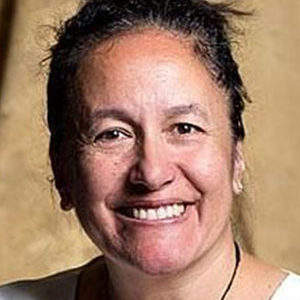
Associate Professor Matire Harwood
Associate Professor Matire Harwood ((Ngāpuhi, Ngāti Rangi, Te Mahurehure, Ngāti Hine) is Associate Professor in the Department of General Practice and Primary Care, University of Auckland. She is also a GP at the Papakura Marae Health Clinic. Her background is in primary health care and rangahau hauora Māori. She is the editor for the Māori Health Research Review and Co-Chair for the Antimicrobial Resistance Science Group, for the Office of the Prime Minister’s Chief Science Advisor. Matire is also a member of the Steering Group to appoint interim members to the board of the Māori Health Authority.
Matire was awarded the 2017 L’Oréal UNESCO For Women in Science Fellowship in recognition of her work addressing the inequities of health-related outcomes between Indigenous and non-Indigenous people
Recent roles have included include membership of the Board and Māori Health Committee at the Health Research Council; acting CEO of Toi Tangata; appointed member of the board at Waitematā DHB; Clinical Director at Tamaki Healthcare PHO; Deputy Chair for Te ORA (Māori Medical Practitioners Association); member of the Asthma and Respiratory Foundation, and Health and Disability Ethics Committees.

Professor Greg Jones
Professor Greg Jones is a Research Professor at the Department of Surgical Sciences, University of Otago with a focus on identifying markers to aid the detection of cardiovascular diseases. These include testing for inherited (genetic) and environment-induced (epigenetic) changes that can be detected in simple blood tests.
His group has a strong clinical emphasis, particularly in the areas of heart disease, aortic aneurysm, peripheral arterial disease and varicose veins.
Greg leads an international consortium, with members from over a dozen countries, which is examining the inherited risk factors for abdominal aortic aneurysm. In addition, he is leading a national initiative to equitably improve cardiovascular disease screening in Aotearoa New Zealand.

Professor Jeremy Krebs
Professor Jeremy Krebs is an endocrinologist with a particular interest in obesity and diabetes. He trained in endocrinology at Wellington Hospital, New Zealand, and then undertook a doctorate with the Medical Research Council—Human Nutrition Research Unit in Cambridge England. His thesis investigated the impact of dietary factors on obesity and insulin resistance.
Jeremy returned to New Zealand in 2002 to take up a consultant endocrinology post at Wellington Hospital, where he is Clinical Leader of Endocrinology and Diabetes. He is also Professor with the University of Otago, and was previously Director of the Clinical Research Diploma at Victoria University. As well as clinical and teaching activities, Professor Krebs maintains active research interests in the area of obesity and diabetes, with a focus on nutritional aspects, bariatric surgery and diabetes service delivery.
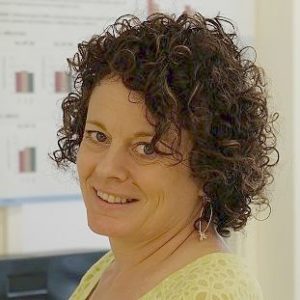
Dr Donia Macartney-Coxson
Dr Donia Macartney-Coxson obtained her PhD in microbial and molecular genetics from the University of Birmingham, UK. She then moved into the area of human genetics, initially with a postdoctoral position focused on non-small-cell lung cancer and then further translating her skills in to the area of obesity research. In 2003 she moved to New Zealand, to work at the Wakefield Biomedical Research Group headed by a gastro-intestinal surgeon, Richard Stubbs.
Donia and a colleague initiated the expansion of the group’s tissue bank from plasma and serum to include whole blood and samples from metabolic tissues. Her work focused on utilising the tissue bank resource to investigate gene expression changes associated with obesity. In 2006 she moved to the Institute of Environmental Science and Research and has since led an obesity type-two diabetes research project. She has a particular interest in epigenetics and a focus on increasing understanding of the pathogenesis of obesity and type-2 diabetes with a view to the identification and development of new biomarkers, prognostic indicators and/or diagnostic and therapeutic tools.

Professor Cliona Ni Mhurchu - Deputy Director
Professor Cliona Ni Mhurchu leads a programme of nutrition research at the National Institute for Health Innovation, University of Auckland. She trained in Human Nutrition and Dietetics at Trinity College Dublin and worked as a Dietitian in the UK before doing a PhD in Public Health Nutrition at the University of Southampton. Her research programme evaluates effects of population dietary interventions and policies, such as food taxes / subsidies, nutrition labels, healthier food reformulation, and food marketing. Current studies use a range of innovative technologies to deliver or evaluate interventions including smartphone apps, a virtual supermarket, and automated wearable cameras.
Professor Ni Mhurchu serves on a number of national and international advisory committees including the National Heart Foundation Food & Nutrition Advisory Group, Food Standards Australia New Zealand Social Sciences & Economics Advisory Group, and the New Zealand Health Star Rating Labelling Advisory Group. She is author of more than 160 peer-reviewed journal papers and Director of the “Dietary Interventions: Evidence & Translation” (DIET) programme.

Professor John Oetzel
Professor John Oetzel is a Professor of Management Communication at the University of Waikato where he teaches courses in conflict management, health communication, and research methods.
His research investigates conflict in teams and across cultures, health service delivery, and partnerships between communities and academics to address health outcomes.
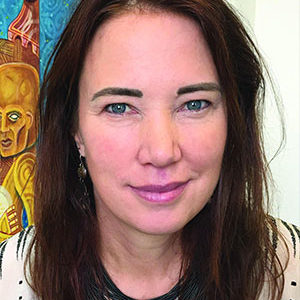
Dr Nina Scott
Dr Nina Scott is a public health physician with the Waikato District Health Board who works across a range of organisations in political, policy, research and clinical settings, with the aim of improving organisational focus on Māori health and is also Chair of the Hei Ahuru Mowai – National Maori Cancer Leadership Group.
Nina was principal investigator of the phase 1 Healthier Lives research project, He Pikinga Waiora: making health interventions work for Māori communities and led the Te Kōhao Community Project. The project looked at how Kaupapa Māori Theory, systems thinking, integrated knowledge translation and community-engaged research can contribute to the development of Māori implementation science in the context of slowing the progression from pre-diabetes to diabetes for Māori communities.
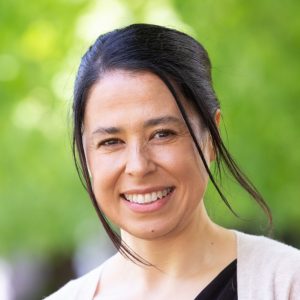
Dr Dianne Sika-Paotonu
Dr Dianne Sika-Paotonu is the Scientific Lead for the Rheumatic Fever and Penicillin Research Programme based in New Zealand and the Associate Dean (Pacific) at the University of Otago, Wellington. She is also a member of the Royal Society Te Apārangi Council and Health Research Council of New Zealand (HRC) Pacific Health Research Committee. She holds service and leadership responsibilities within the Pacific community and is an HRC Pacific Emerging Research Fellow, and recent recipient of the Sir Thomas Davis Te Patu Kite Rangi Ariki Health Research Fellowship from HRC. Dianne is also a member of the Takiala Pacific Leadership Network within the Health Sciences Division and Pacific Academic Staff Caucus Committee for the University of Otago. She sits on numerous local and University of Otago based Committees, in addition to International Governance Boards. She also functions as Chair and Convenor for Rheumatic Fever and Penicillin related Pacific Research Advisory Groups.

Mr Andrew Sporle - Deputy Director
Andrew Sporle is a Senior Research Fellow at the University of Auckland’s Department of Statistics, and Research Manager at McDonald Sporle Ltd. He was previously a member of He Oranga Hauora Kāhui Māori and is a member of the Science Leadership Team for the Ageing Well National Science Challenge. He was the inaugural Maori health research manager at the Health Research Council of New Zealand (HRCNZ) where he was involved in implementing strategies for the rapid development of Māori health research. His research interests include Indigenous statistics, social inequities, Māori responsiveness of research investment and the creation of public domain tools for accessing and applying existing data. He is a founding member of Te Mana Raraunga – The Māori Data Sovereignty Network.